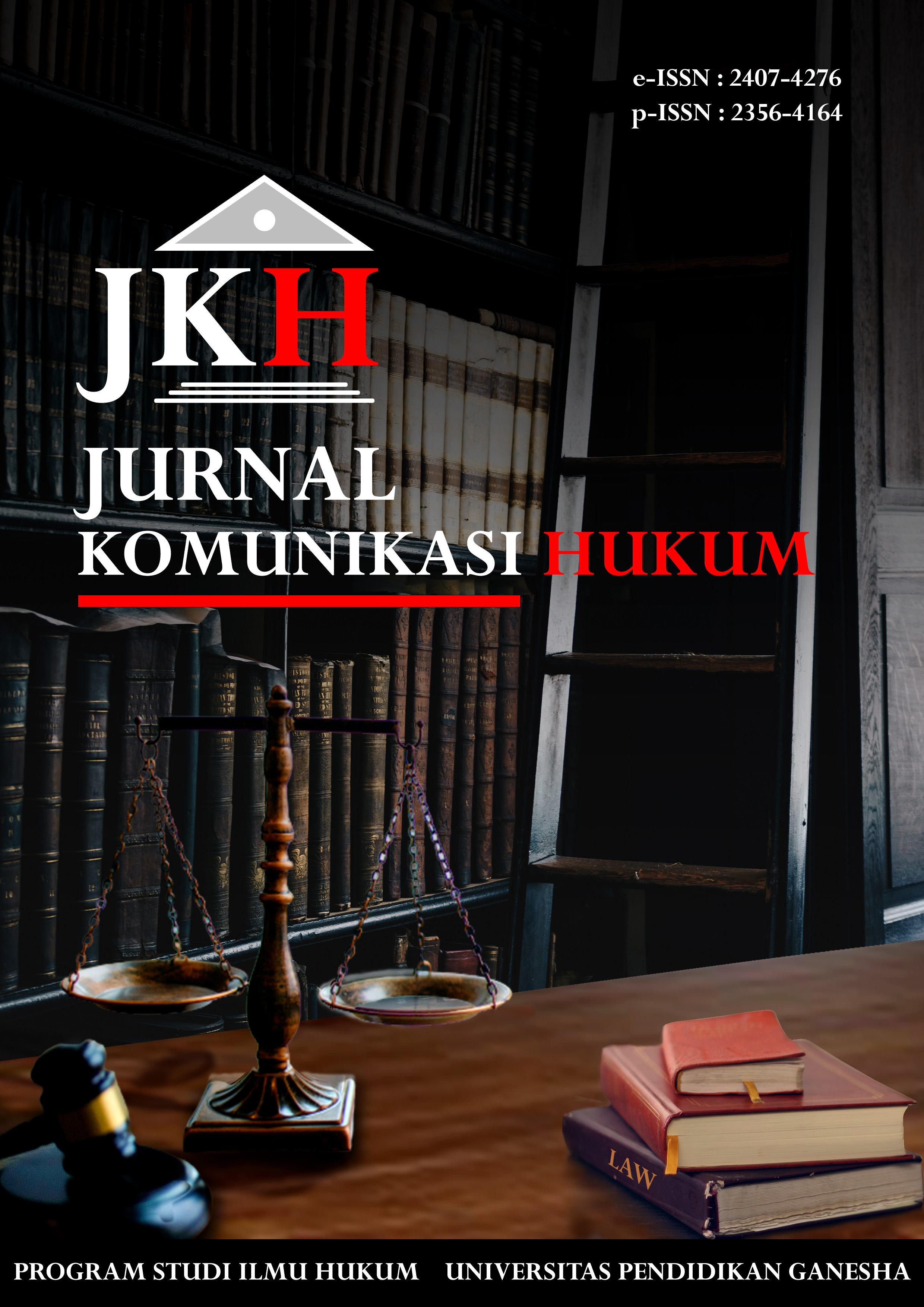Optimalisasi Perlindungan Anak Melalui Sumber Hukum Hindu
DOI:
https://doi.org/10.23887/jkh.v7i1.31472Keywords:
Children, Hindu Legal ResourcesAbstract
Children are the next generation of the nation and every parent's dream. To be able to form children that can be relied upon and become a hope for both parents and useful for the nation and state, the role of parents in guiding and caring for their children is very important. In the Hindu religion books have been explained about children such as Manawa Dharmasastra, Sarasamuccaya, Slokantara and Silakrama. For example in the weda explained Until the age of five, parents must treat their children as kings. In the next ten years as a servant, and after age sixteen and above must be treated as a friend. In this sloka explained, it is better for us to give punishment to children when they make a mistake, as long as it's only natural. If you always spoil a child and have never been banned in any case, then he will get used to what is wrong. According to the Law of the Republic of Indonesia Number 23 Year 2005 concerning Child Protection also confirms that what is meant by a child is someone who is not yet 18 (eighteen) years old, including children who are still in the womb. A child must get good treatment and protection from the womb until birth and growing up. For this reason, the role of parents in understanding and deepening the teachings in the Vedas is very important. We must understand correctly what is the child's needs.Downloads
Published
2021-02-17
How to Cite
Ayu Suseni, K. (2021). Optimalisasi Perlindungan Anak Melalui Sumber Hukum Hindu. Jurnal Komunikasi Hukum (JKH), 7(1), 226–234. https://doi.org/10.23887/jkh.v7i1.31472
Issue
Section
Articles
License
Authors who publish with this journal agree to the following terms:- Authors retain copyright and grant the journal right of first publication with the work simultaneously licensed under a Creative Commons Attribution License that allows others to share the work with an acknowledgement of the work's authorship and initial publication in this journal.
- Authors are able to enter into separate, additional contractual arrangements for the non-exclusive distribution of the journal's published version of the work (e.g., post it to an institutional repository or publish it in a book), with an acknowledgement of its initial publication in this journal.
- Authors are permitted and encouraged to post their work online (e.g., in institutional repositories or on their website) prior to and during the submission process, as it can lead to productive exchanges, as well as earlier and greater citation of published work (See The Effect of Open Access).
Authors who publish with this journal agree to the following terms:
- Authors retain copyright and grant the journal right of first publication, with the work [SPECIFY PERIOD OF TIME] after publication simultaneously licensed under aCreative Commons Attribution License that allows others to share the work with an acknowledgement of the work's authorship and initial publication in this journal.
- Authors are able to enter into separate, additional contractual arrangements for the non-exclusive distribution of the journal's published version of the work (e.g., post it to an institutional repository or publish it in a book), with an acknowledgement of its initial publication in this journal.
- Authors are permitted and encouraged to post their work online (e.g., in institutional repositories or on their website) prior to and during the submission process, as it can lead to productive exchanges, as well as earlier and greater citation of published work (See The Effect of Open Access).












